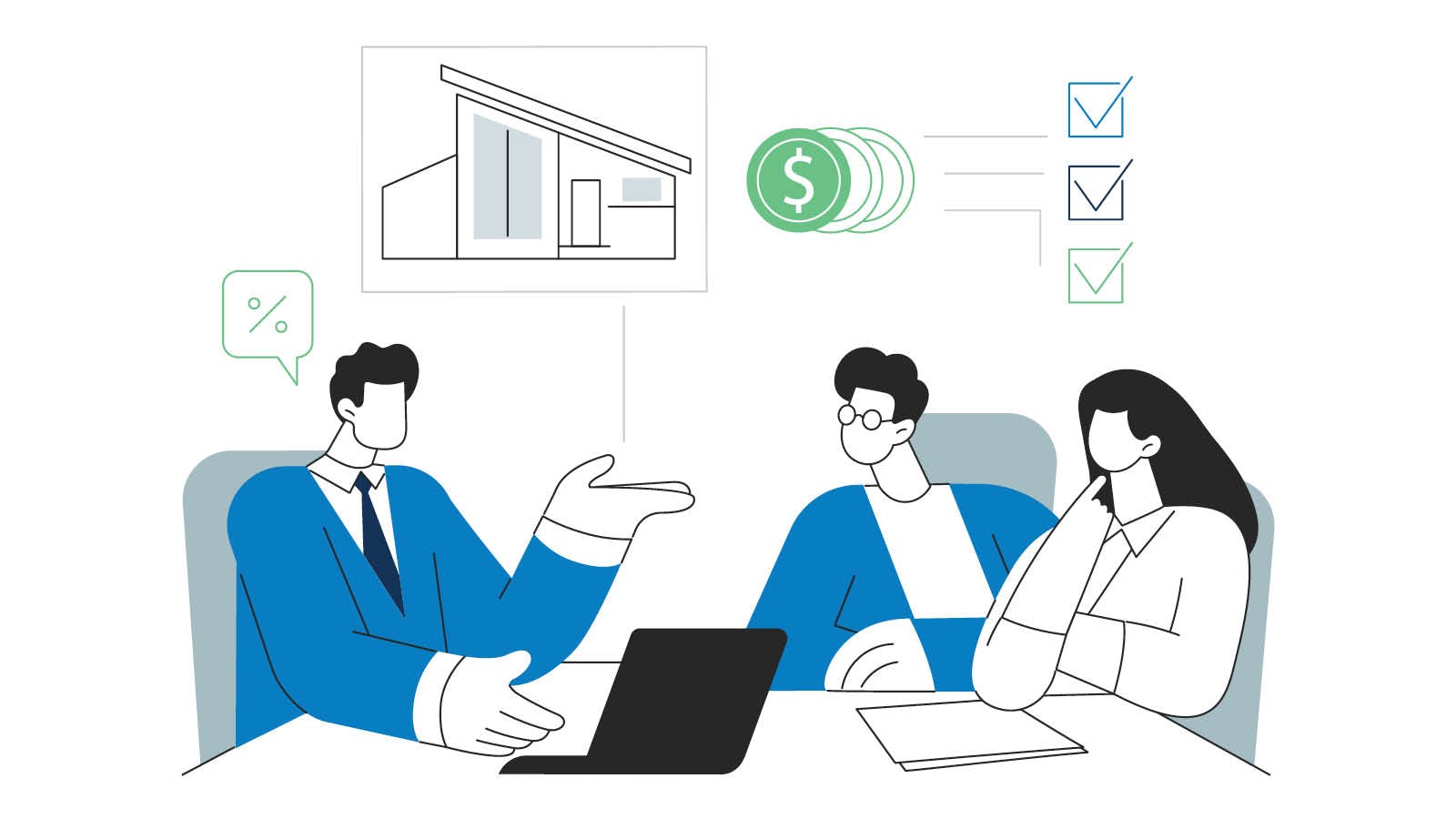On Friday, March 27th, the Coronavirus Relief Bill (CARES Act) was passed into law as a response to what was declared a national emergency on March 13th. This economic stimulus legislation is a feat of bipartisan communication and action like the United States hasn’t seen in decades. And – to the aid of many struggling with the fallout of the national COVID-19 emergency – there may be support for homeowners challenged to make their mortgage payments due to financial hardships incurred during this global health crisis.
According to The CARES Act (2020), homeowners with a “federally backed mortgage loan” may be able to contact their mortgage loan servicer and request forbearance for mortgage payments for up to 360 days. In fact, those who qualify may be able to defer their home loan payments without any additional fees, penalties or interest (other than the scheduled accrual of interest as if payments were made) for an initial 180-day period. Homeowners may then request to extend the period of forbearance for an additional 180-day period.
It’s important to note that, while mortgage forbearance may help alleviate current financial difficulties, credit bureaus have not yet clarified impact on credit scores. Therefore, your ability to avoid credit score penalties may depend on your specific loan. Another important consideration when seeking forbearance is repayment. Once the forbearance period has concluded, you will be responsible for your unpaid mortgage balance. You may be able to pay the amount due through a scheduled repayment plan or through permanent modification of your loan terms. Consider clarifying (in writing) these terms before committing to forbearance.
Wondering, “can I defer my mortgage payment under the CARES Act?” Your first step is determining whether your loan is a “federally backed mortgage loan.” This guide clarifies who to contact to request forbearance (mortgage deferral) and outlines all the major players involved in your home loan.
The jargon, defined
Federally Backed Mortgage Loan – In general, a mortgage loan purchased or securitized by Fannie Mae or Freddie Mac, or insured or guaranteed by certain federal agencies such as the Federal Housing Administration (FHA), the Department of Veterans Affairs (VA), the Department of Agriculture (USDA), or the Government National Mortgage Association (Ginnie Mae).
Forbearance – Forbearance is temporary suspension of loan payments, acting as relief to borrowers. In this case, Forbearance may be granted without any additional fees or penalties.
CARES Act – The Coronavirus Aid, Relief and Economic Security Act was passed into law on March 27th, 2020 in order to meet the immediate economic needs of citizens of the United States. The legislation provides support for individuals, small businesses, corporations and public health organizations.
Mortgage Loan Servicer– The company that collects monthly mortgage loan payments and sends out monthly mortgage loan statements.
Is my home loan a “federally backed mortgage loan”?
In order to inquire about your potential ability to benefit from the mortgage forbearance provided for in the CARES Act, you’ll want to reach out to your loan servicer. While you may or may not have obtained your loan from your current loan servicer, you’ve likely been communicating with them directly each month when you pay your mortgage.
To answer the question, “Is my mortgage loan a federally backed mortgage loan” simply pinpoint, then contact your loan servicer. As soon as you close on your mortgage loan, your mortgage servicer is responsible for any questions pertaining to your loan. Check your most recent loan statement to identify the company currently servicing your mortgage. This is the entity that will handle your forbearance, if you qualify.

*Your mortgage loan statement will be branded with your loan servicer’s company information. This may be at the top left corner (as pictured above) or could be anywhere on the statement.
You likely worked closely with a mortgage broker or mortgage banker to secure your home loan. However, once you’ve closed and your new loan has been funded, the loan servicer becomes your primary contact for specific questions about your loan. Depending on the type of mortgage professional you used to obtain your loan, your loan servicer could be the same company or a different one. Keep in mind that your loan servicer may have changed over the life of your home loan since occasionally, the original, or a subsequent, loan servicer will transfer the servicing of your loan to a different servicer. In that case, you would have received a letter (or other communication) informing you of the change. That’s why the easiest way to find your current loan servicer is by checking your most recent mortgage loan statement for servicer contact information.
Your loan servicer will be able to tell you if your loan is a “federally backed mortgage loan” as defined in the CARES Act and therefore eligible for forbearance. You may also take this opportunity to inquire about repayment options before committing to forbearance. Requesting descriptions of repayment options (which may include a payment plan, loan modification or lump-sum payment) could also prove very beneficial. And, even if your loan is not eligible for forbearance under the CARES Act, your loan servicer will be able to tell you if they can offer some other form of forbearance, deferment, modification or other payment relief.
The mortgage broker’s role
A mortgage broker works closely with you to shop loan options so that you can select the rate and terms that work for you. Mortgage brokers are able to comparison shop home loans because they have access to a variety of mortgage lenders, each of whom likely offer many loan products. You can think of a mortgage broker as your home loan personal shopper.
If you worked with a mortgage broker to obtain your current home loan, this is probably who you think of when you recall your home loan acquisition process. Mortgage brokers are fantastic ongoing resources for information on refinancing or future home purchases.
Mortgage broker – Mortgage brokers work closely with the borrower to shop loan options from a variety of lenders. They guide clients through the home loan acquisition process.
Mortgage lender – A financial company or bank who provides the funds (and terms) for a given home loan.
The answer to, “Can I defer my mortgage payment under the CARES Act?”
In essence, you can determine whether you qualify to defer a mortgage payment by contacting your mortgage loan servicer. Check your most recent home loan statement and contact the loan servicer (company) listed there. They’ll be able to answer any questions pertaining to forbearance requests, loan ownership and “federally backed mortgage loan” status. Remember that even if you don’t qualify for mortgage forbearance under the CARES Act, there may be other sources of financial relief outlined in the CARES Act to support. Take care, stay tucked away and keep your loved ones and community healthy during this global health crisis.
Published on April 2, 2020


